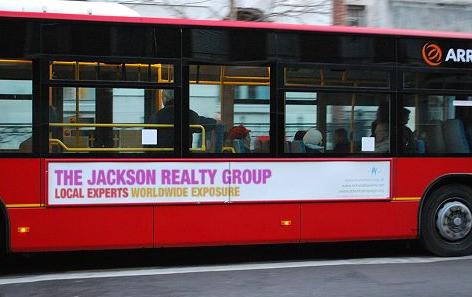Below is a blog post from Charles Hugh Smith’s blog: OfTwoMinds.com
I couldn’t comment or paraphrase anything in his post that would be an improvement or would add any clarity…so the verbatim post is below. You should add his blog to your daily reading list.

Janet Yellen's role as the nation's slumlord is masked by her apparent distance from the Fed's money spigot and the resulting institutional ownership of the nation's rental housing stock.
Please welcome the nation's new chief slumlord, Janet Yellen. The previous top slumlord, Ben Bernanke, has retired from the position of Chief Slumlord (i.e. chair of the Federal Reserve) to the accolades of those who benefited from his extraordinary transfer of wealth from the many to the few.
Why is the chairperson of the Fed the nation's top slumlord? Allow me to explain.We only need to understand two facts to understand the Fed's role as Slumlord.
1. Rental housing has long been a decentralized, locally owned industry. Over 90% of rental properties under 50 units have historically been owned by individuals or couples: the nation's landlords have historically been Mom and Pop, middle-class folks who saved capital and used those savings to buy a single-family home or small apartment building (duplex, triplex, four-plex) as an investment that they own and manage.
Very few amass a huge portfolio of properties, as few have the income or assets (i.e. the collateral) to leverage the purchase of dozens of rental properties.
Buildings up to four units qualify for conventional mortgages; small rental properties are not considered commercial properties like strip malls or large apartment complexes.
This diverse, local ownership provided a wide spectrum of residential rentals. The wider the variety of rentals and owners, the greater the diversity of prices, locales and requirements. This is the essence of free enterprise: sellers (landlords) and buyers (renters) agree to price and conditions in a dynamic, open and adaptive marketplace.
2. No Mom and Pop real estate investor can compete with financial institutions who can borrow unlimited sums of money from the Federal Reserve at near-zero rates of interest.
Let's start by asking what happens to the price of real estate when mortgages fall from 8% interest to 4%: prices basically double, because buyers can "afford" to pay more at low rates of interest.
When conventional mortgage rates are 8%, a rental that costs $200,000 requires a 30% down payment in cash (because the buyers are not owner-occupants) or $60,000. The simple interest on a $140,000 mortgage is about $11,200 annually. (Let's use simple annual interest for simplicity's sake.)
At 4%, the price can double to $400,000, with a 30% down of $120,000 and a mortgage of $280,000, and the mortgage accrues the same $11,200 in annual interest.
Declining interest rates push real estate prices higher.
At first glance, this doubling in price doesn't seem to affect the cost of ownership. But that is deceptive; consider how many households can scrape up $120,000 in cash compared to the number who can scrape up $60,000. The higher the price, the bigger the down payment required. The higher the down payment, the fewer the number of households who can accumulate that much cash.
To households that live paycheck-to-paycheck, both sums are out of reach. But a significant number of middle class households could accumulate $60,000: such a sum could come from a family house that was sold and divided amongst the offspring, for example, or a Solo 401K that allows the retirement fund to own real estate, or from saving $5,000 a year for 12 years.
The Federal Reserve's Zero Interest Rate Policy (ZIRP) was designed to push real estate prices higher. The Fed's public justification was "the wealth effect": the idea was that as the family home increased in value, homeowners would begin to borrow and spend more money due to their increased home equity.
The second Fed goal was to increase home sales by lowering mortgage rates, theoretically enabling more marginal buyers to buy a home. But since prices rise as mortgage rates drop, this goal is mooted unless marginal buyers are also given a free ride on down payments and qualifying income, i.e. offered near-zero down payments and no-document mortgage qualification processes.
But zero interest rates and unlimited liquidity don't just push real estate prices higher--they give institutions with access to the Fed's nearly-free money an unbeatable advantage over Mom and Pop real estate investors.
Imagine being able to borrow $400,000 at 1% with zero collateral. You can now buy the rental property for cash, and pay only $4,000 in simple annual interest. And you didn't have to put up a dollar of actual collateral to buy the property.
Consider the huge advantages you now have over the competing Mom and Pop bidders. Sellers typically prefer cash offers, so your cash offer (of Fed money) is more attractive than Mom and Pop's loan-based bid.
If the price jumps to $500,000, Mom and Pop are blown out of the water: they don't have the additional $30,000 cash required as collateral.
Thanks to the Fed, you don't need any collateral. You can borrow $500,000 as easily as $400,000, and the increase in annual interest is trivial: a mere $1,000.
Now consider the operating costs: you have a $7,000 annual advantage because you have access to the Fed's nearly-free money. Mom and Pop have to pay $11,200 in simple annual interest, while you pay only $4,000. A property that is break-even to Mom and Pop reaps you a $7,000 annual profit, just because you can borrow money from the Fed for next to nothing.
Now multiply the $400,000 and the $7,000 by 1,000. Now you can buy $400,000,000 of rental properties and skim $7,000,000 in annual profits, just from the advantage of having access to the Fed's quantitative easing (QE) nearly-free money.
Any advantages you can accrue from economies of scale from owning tens of thousands of rental properties are also yours to keep, courtesy of the Fed.
Now you understand why Janet Yellen is the nation's new top slumlord. Her policies of unlimited liquidity, QE and zero interest rates directly enable financial Elites to beat out Mom and Pop rental housing investors and buy tens of thousands of rental properties at will.
Access to free money and near-zero interest rates gives institutional buyers a built-in advantage over Mom and Pop rental property owners: no collateral and free profits from super-low rates available to those closest to the Fed's QE money spigot.
Institutional ownership turns the rental housing stock into a Fed-enabled financial monoculture. Individual Mom and Pop owners may not require a credit check, or they might not raise the rents very often; the odds that you will be treated as a human being are higher because the scale of the operation is small and local.
To Fed-enabled Institutional landlords, you are an income stream to be skimmed.You will be processed and managed remotely, and variations are not allowed, as they mess up the profit machine.
Fed-enabled Institutional landlords may or may not hire competent, responsive managerial firms to manage their thousands of properties: from the point of view of Fed-enabled Institutional landlords, the lower the costs, the larger the profits. One way to lower costs is to not respond to tenant complaints or requests for service. Another is to hire the lowest-cost (and likely understaffed) management firm.
Janet Yellen's role as the nation's slumlord is masked by her apparent distance from the Fed's money spigot and the resulting institutional ownership of the nation's rental housing stock. But guess what, Chairperson Yellen: we're not fooled. Your phony facade of "progressivism" doesn't mask your real role as the nation's top slumlord.
 This week I had a meeting to discuss the details of the launch of a new type of lease-option program for my clients. This is very exciting news for the thousands of people looking to do a lease option the ability to lease option a very wide range of homes.
This week I had a meeting to discuss the details of the launch of a new type of lease-option program for my clients. This is very exciting news for the thousands of people looking to do a lease option the ability to lease option a very wide range of homes.

















